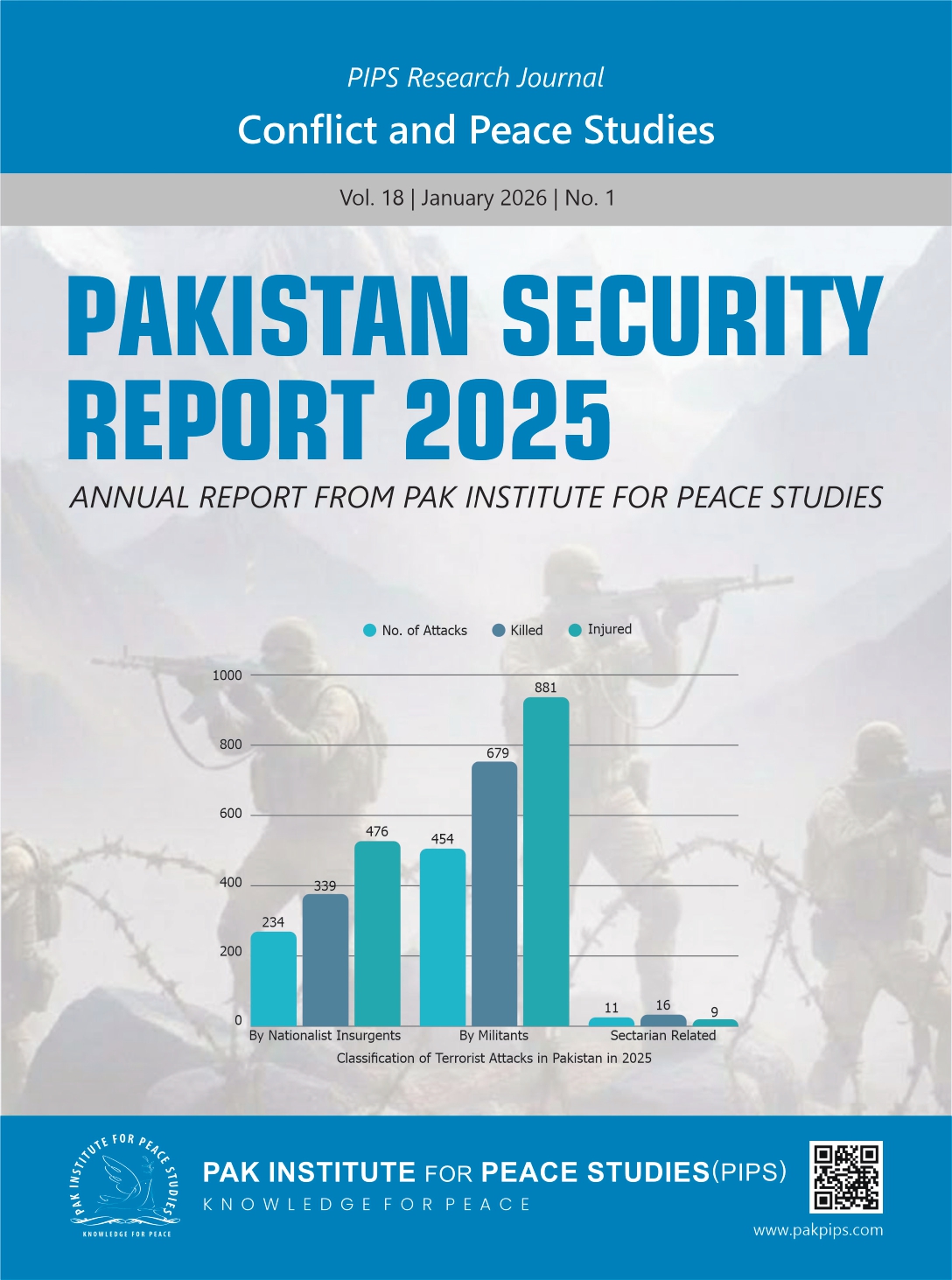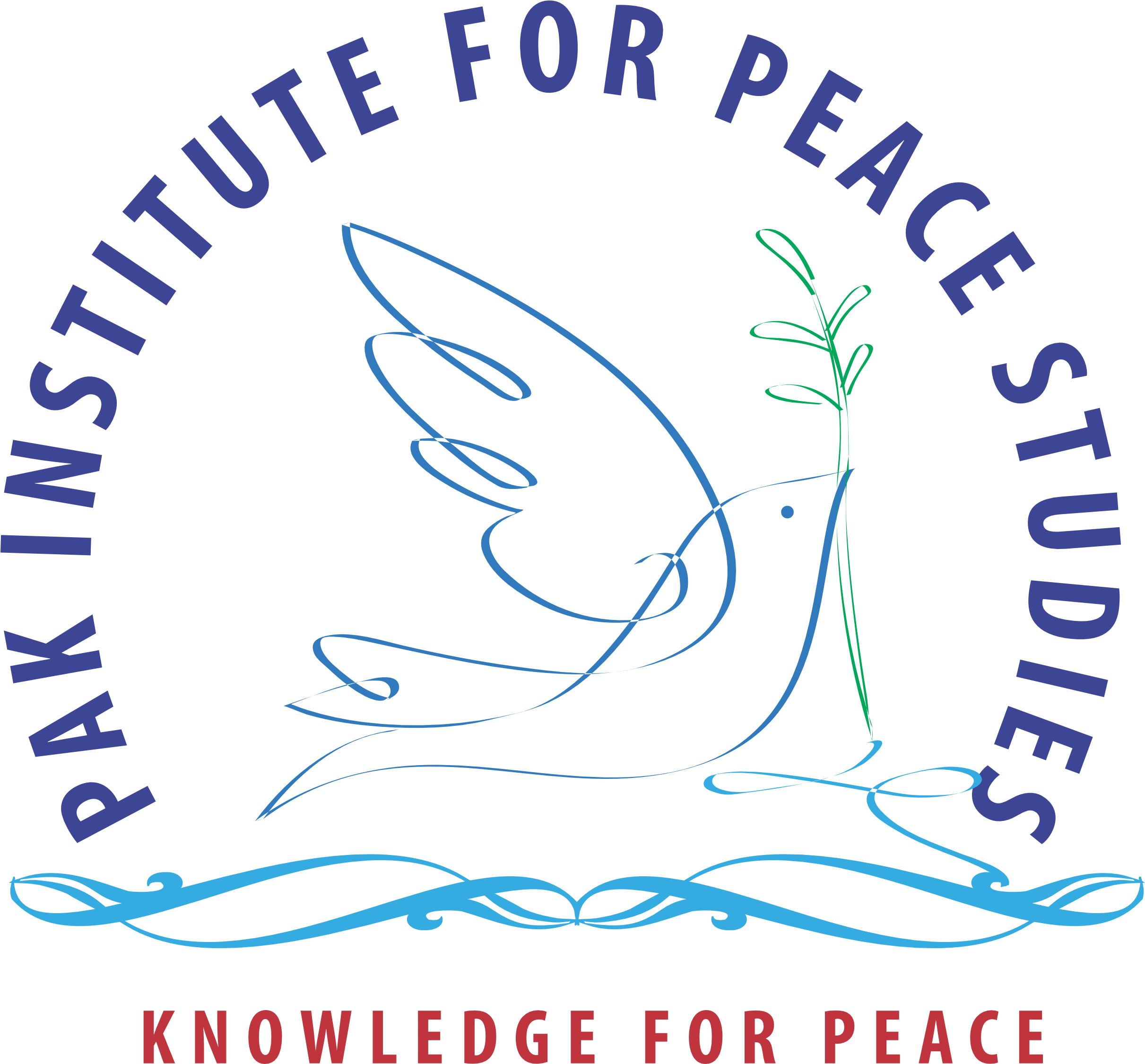QUARTERLY NEWSLETTER | JAN-MAR 2026
Pakistan’s Constitution provides explicit safeguards for religious minorities; however, a persistent gap remai...
12 February, 2026


Conflict, insecurity and violence are among the core thematic areas that the Pak Institute for Peace Studies focuses in its research-and-analysis and policy advocacy initiatives for peace and stability in Pakistan and wider region. When PIPS started to work as an independent research institute in last quarter of 2005, it found that available data consisted of day-to-day media reports of conflicts and incidents of violence and terrorism etc. in Pakistan or literature coming from Western sources, which lacked the local context and understanding. Most of the western and local research on conflict and insecurity in Pakistan also did not have strong empirical base due to increased focus on theoretical perspective and less reliance on field work and firsthand data.
Since 2006, the PIPS has been striving to develop a comprehensive database on conflict and security issues at national level through continuous monitoring and documentation of each and every incident happening in the country on daily basis, maintaining diversified info tracks of terrorist and insurgent attacks, sectarian related terrorism, ethno-political violence, cross-border attacks, operational attacks by the security forces, kidnappings, and search and arrest operations. Each incident is given special attention with strong follow up and liaison with correspondents in conflict zones, along with regularly updated profiles and archives, and after about six years’ rigorous exercise the PIPS launched this online database web portal as a baseline data and permanent source of independent information to map militant and security landscape of Pakistan and carry out research and analysis on issues related to conflict, insecurity, violence and terrorism etc.
Pakistan’s Constitution provides explicit safeguards for religious minorities; however, a persistent gap remai...
12 February, 2026Pakistan witnessed a sharp surge in militant violence in 2025, with 699 terrorist attacks recorded countrywide...
02 February, 2026Peshawar—Speakers at a media workshop said that journalists must cover conflict with great care and responsibi...
27 January, 2026The Pakistan Institute for Peace Studies (PIPS) held an expert dialogue titled “Building Bridges: A Stakeholde...
02 January, 2026Freedom of religion or belief in Pakistan remains under serious threat, with religious minorities facing growi...
24 July, 2025According to the 2023 census, the population of Pakistan is 241.5 million. Hindus are the largest minority, co...
24 April, 2025House 643H, Street 40, E-11/3 Islamabad
+92-51-8359475-6
+92-51-8359474
pips@pakpips.com
For research inquiries, media requests, database access, or collaboration opportunities, please contact our team using the form provided.
Comprehensive repository of past reports, publications, and records.
In-depth analysis and evidence-based studies on peace and security.
Multimedia content including, and digital outreach.
